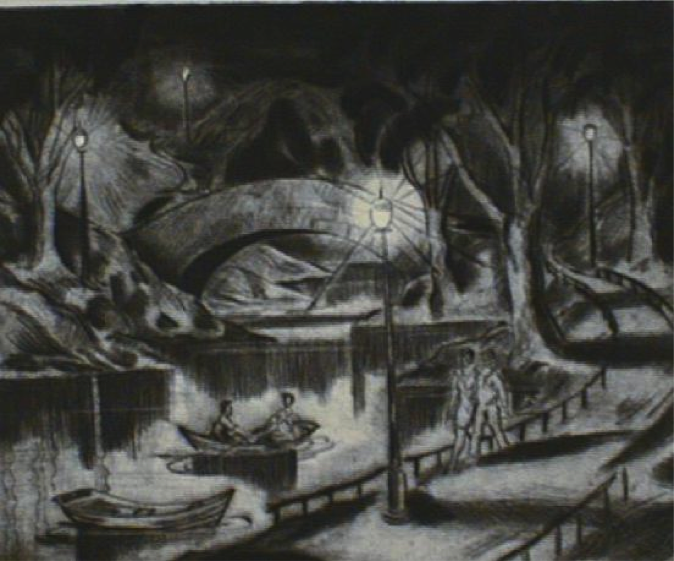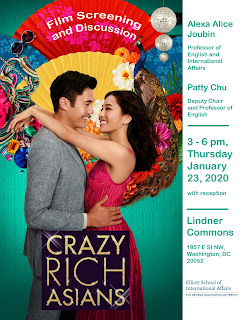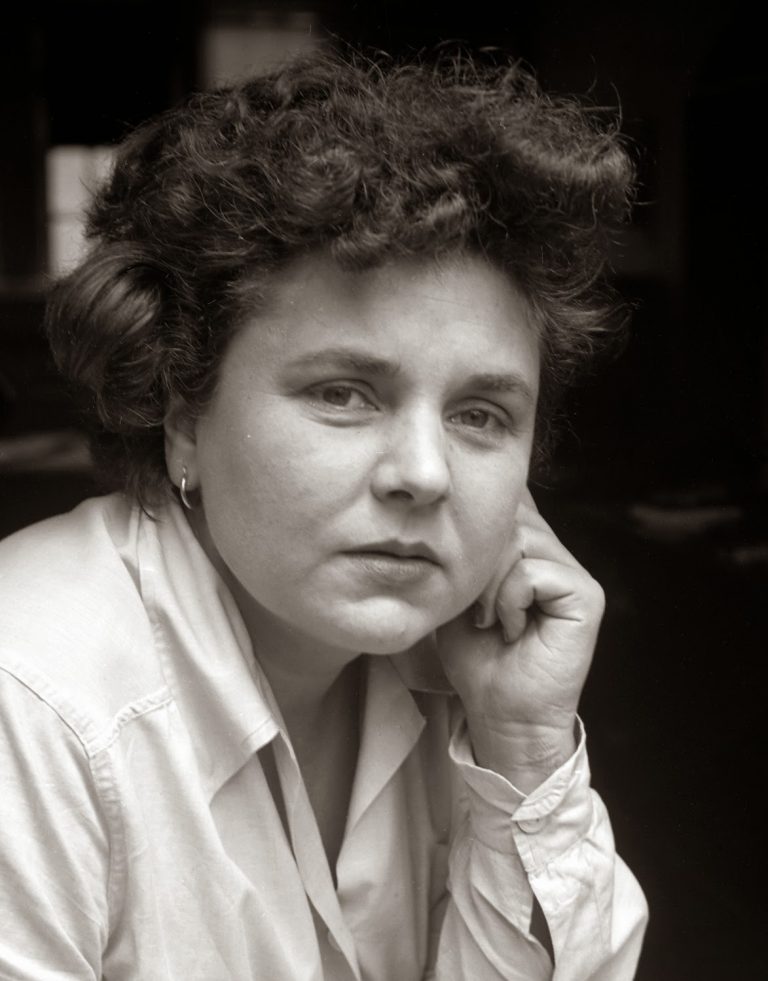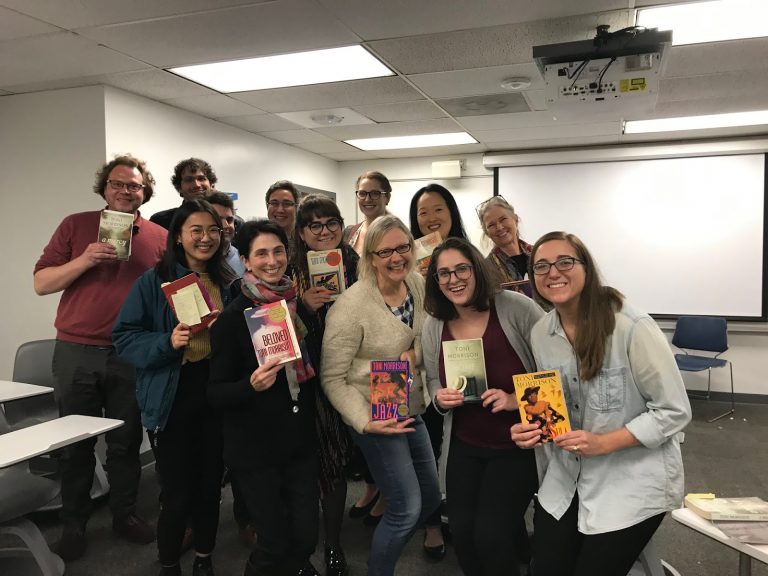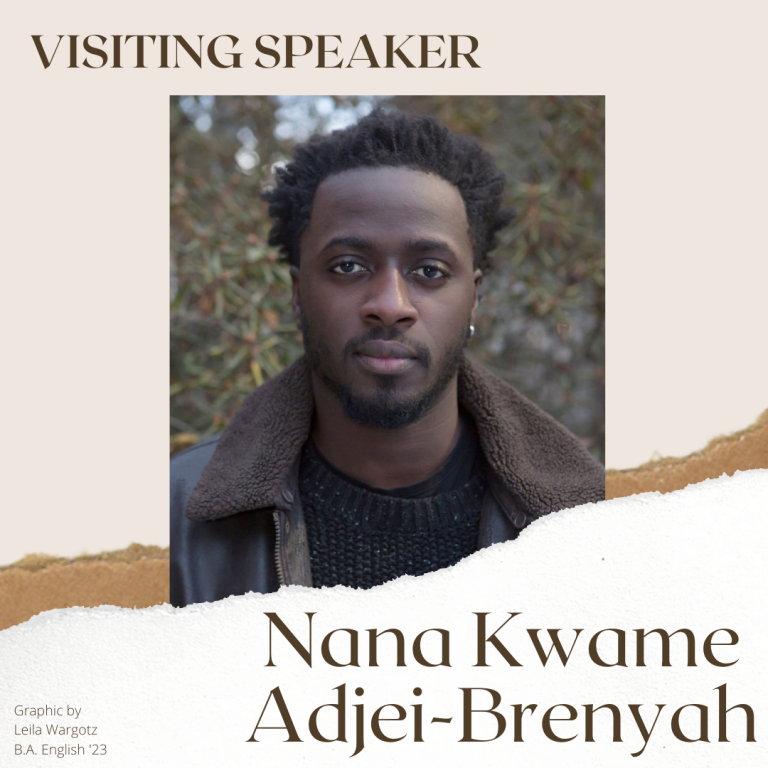Poem of the Day: Philip Nikolayev’s “A Midsummer Night’s Stroll”
fire, cursed the telephone, and basked in verse, in verve, and also
Humid, terrestrial, mixed, nongenderspecific, have occasionally
day’s tumult ushers in an evening with a lone moved a woman’s
shut icecream stand, false promises of cone heart, although I also,
and scoop near Central Park. Juneific famously, had such an awk-
are the silhouettes of people dreaming by, ward start. Amazed at
lips, lit cigarette tips, thoughts and tulips streaming by how much
along dimly hospitable park lamps toward eleven symmetry a life
with an occasional rev of internal combustion can still support, I
wafted across from nearabouts. stare in rapt near-idiocy, like a
“What’s this you are talking about, Sarah?” foreign passport, and
you hear a voice, and the reply, “I’m sorry. April’s Persian lilacs
but what was I supposed to do?” Two bats all bloom straight into
dash through a silver stretch of atmosphere. my face, and various
What she was supposed to do we never hear, other blossom, too,
depending on each case, while you are softly tangible, while you
are sweetly mine. We’re existentially wise, we’re mortally divine.
lusters flow, and when your palm is in my palm, just as my poem
There is a sparkling tone to how you speak, is in your poem, look
a quickness to your whisper, an implied at this stellar, cellular,
correctness in your ironies. We stride organic life of mine, the
along emphatic benches in the weak general and particular, the
light bristling eloquent dark. Pine, elm and oak gross (as well as
fall silent now to hear you tell a joke— fine) intentions I epitomize.
something about a man and a mandrake; Look, seeing through its
I think it cute and laugh like Captain Drake. thin disguise the bleary
We then explore the vagaries of light sky whose weepy eyes have
found underfoot by lamps, and kiss. “Beatrix, rained us a surprise.
will you still need me when I’m thirty-six?” A lightning bolt’s
You favorably mumble that you might, protruding hand snatched
and throw a willing arm around my nape. past us, far and brief and
I reassure you that there’s no escape. as I hold you in my arms, you
fill me with belief. Don’t wonder if and how, much stranger than
right now, the hyacinth of sorrow may blossom forth tomorrow.
knotty dispositions dissolved in limpid dance. They offer us their
Another couple floats up through thickened ink stardom. Oh, we
into the field of vision, to redissolve could sympathize with them,
leaving a thin trail of perfume and love but instead, we set eyes
and visual recollection in the pink. with them upon that higher
Cicadas cataract from tree to tree. tsardom, that real of love and
A mock nightingale trills, then two, then three. reason. Our lengthy
We cut short across grass and leaves (then four), cigarettes crackle
encountering no one on our slight detour with dry regrets during
where, negligibly burdened with a sixpack, the rainy season, but
a master and his bulldog rustle on, we ignore their humors, their
a small red light fixed to her furry back. melancholy murmurs,
We are too busy with our love to see them. decline ascetic rigors,
Tomorrow we’ll be going back to Boston. welcome straight facts,
Three cheers for Central Park at height of season. clear figures,
where laws concerning numbers come plumed with midnight
sounds, and spirits stir from slumbers like angels out of clouds.

